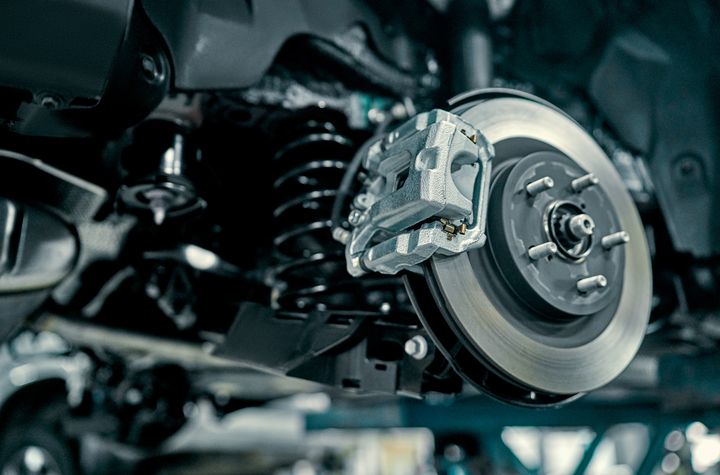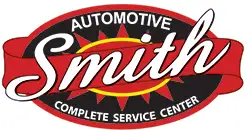
Brakes are one of your vehicle's most critical safety features. Functioning brakes enable daily commuters to stop quickly and safely, significantly reducing the risk of accidents. Additionally, brakes can help your vehicle readily and effectively stop during emergency situations.
Most drivers across the state of Iowa and throughout the United States consider routine brake maintenance to be a vital safety protocol.
Top Reasons to Prioritize Brake Repair Services
Brake repair services are a top priority when it comes to vehicle maintenance and safe driving conditions.
- Safety: Regular and proper maintenance of your brakes is essential to prevent accidents. Faulty brakes significantly impair your ability to avoid collisions and can lead to severe injuries.
- Efficiency: Worn brakes reduce your vehicle's stopping capability, especially in critical situations. Timely brake repairs not only improve function but also ensure quicker, safer stops.
- Longevity: Promptly addressing brake issues is vital for maintaining the longevity of your brake system. Ignoring minor problems can lead to more significant issues, higher repair costs, and reduce the longevity of your braking system.
- Cost-Effectiveness: Early detection and repairs can prevent more extensive damage, saving you a considerable amount in long-term vehicle maintenance expenses.
When it comes to comprehensive maintenance and services, Smith Automotive is Pleasant Hill’s one-stop brake repair shop.
Our Brake Inspection Process
Regular inspections by trusted local mechanics, such as Smith Automotive in Pleasant Hill, can be key to promptly detecting signs of wear and tear.
During Smith Automotive's brake inspection process, our technicians will meticulously examine your braking system, including the calipers, fluid levels, pads, and rotors. Our comprehensive evaluation enables us to accurately assess the condition of your braking system and address any needed repairs or adjustments. Our shop is also equipped with a multitude of cutting-edge equipment to assist us in performing precise, detailed inspections every single time.
Brake Calipers
Brake calipers are essential to your vehicle's braking system. They operate when you press the brake pedal, causing hydraulic pressure to act on the pistons inside the caliper. This pressure forces the brake pads against the rotor, slowing your vehicle and allowing it to stop safely.
While brake calipers typically last a long time, you need to watch for signs that they require replacement. A common issue includes the caliper becoming stuck, which can cause the vehicle to veer to one side during braking. Repairing faulty calipers is crucial to avoid safety hazards and prevent higher repair costs in the future.
Brake Fluid
Brake fluid plays a critical role in both the effectiveness of braking and the protection of the brake system from moisture, which can cause corrosion and rust. Checking your brake fluid levels and routine replacements are particularly important when it comes to ensuring your car’s brakes remain reliable and functional.
As it ages, brake fluid loses its ability to lubricate the system effectively, compromising the safety and reliability of your brakes. With the average U.S. driver using their brakes around 75,000 times a year, regular fluid replacement is essential.
Brake Pad Replacement
Brake pads are crucial for effective braking. Over time, they wear down, reducing your ability to stop efficiently. It is advisable to replace brake pads when they thin to less than a quarter of an inch. Additionally, consistent squealing can also indicate a problem with your brakes.
Neglecting brake pad wear can significantly increase your vehicle's stopping distance, putting you and your passengers at risk. Regular maintenance of your brake pads helps keep your braking system robust, ensuring your safety on the road.
Brake Rotors
Brake rotors are vital for a safe stop. Maintaining them in optimal condition prevents problems such as overheating and failure. Thin rotors may not dissipate heat well, which can increase wear on brake pads and lead to more frequent replacements, higher costs, and other issues down the line.
Consistent maintenance can help ensure that your brake rotors operate effectively. At Smith Automotive, we meticulously measure the thickness of your brake rotors as a standard part of our service.
Types of Braking Systems
Disc Brakes
Often visible through your car's wheel, the shiny metal disc you see is what is known as a disc brake. When you press the brake pedal, a durable pad clamps onto this disc, generating friction that reduces your vehicle's speed—similar to how a bicycle's braking system operates.
Drum Brakes
While some vehicles feature disc brakes on all four wheels, others may have them only on the front, complemented by drum brakes on the rear wheels. Drum brakes work by pressing brake shoes against a rotating drum to slow or stop your vehicle.
Drum brakes are appreciated for their simplicity and cost-effectiveness. They are particularly resistant to water and dust, making them suitable for most wet or dusty environments. Although they are generally less common than their disc brake counterparts, their advantages keep them popular with some modern vehicles.
Parking Brake
Parking brakes are designed to keep parked vehicles secure and stationary, preventing them from rolling down a hill or being unexpectedly moved. Often referred to as the emergency brake, this system can also bring the car to a halt in the event that the regular hydraulic brakes fail completely.
Your parking brake system usually exerts force on the disc or drum brakes through a less intense mechanism. Typically activated by a lever, pedal, or button situated between the front seats, the parking brake employs a series of levers and cables to engage the rear brakes. Some parking brakes are entirely mechanical, operating through a network of cables and levers.
Most older car models use a purely mechanical system that doesn’t rely on brake fluid. On the other hand, many newer cars feature an electronic parking brake, which utilizes electric motors for activation.
Brake Maintenance
Taking simple steps can significantly extend the life of your braking system. To maintain optimal performance, avoid driving through puddles, as water can degrade brake functionality. Additionally, keeping your brakes free of dirt and debris is essential for maintaining their effectiveness.
Signs Your Car Needs Brake Repair(s)
- If you hear unusual and consistent squealing or grinding noises while braking, your brake pads likely need replacement due to wear and tear.
- If you feel a spongy brake pedal or it sinks to the floor, you might have low brake fluid levels or malfunctioning brake calipers.
- If your vehicle veers to one side when you brake, you may need to ask your mechanic to check for faulty brake rotors or unevenly worn brake pads.
Pleasant Hill’s Certified Brake Specialists
The highly skilled team at Smith Automotive is equipped to handle every aspect of brake repair, ensuring your vehicle remains safe and responsive on the road. We will help ensure your vehicle's braking system remains in optimal condition!
